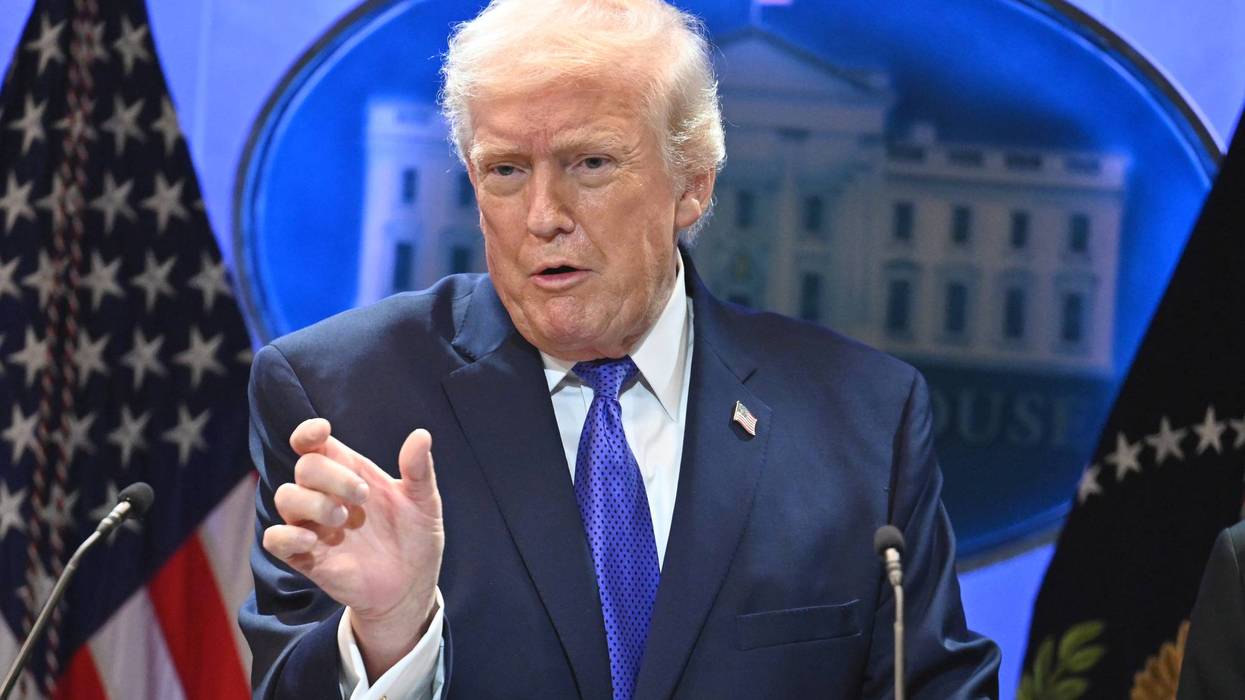July, 29 2009, 11:29am EDT
For Immediate Release
Contact:
Sam Husseini, (202) 347-0020; or David Zupan, (541) 484-9167
Medicare Anniversary
WASHINGTON
Thursday is the anniversary of Medicare's enactment.
JOHN GEYMAN
Geyman is professor emeritus of family medicine at the University of Washington. He is past president of Physicians for a National Health Program and author of the book "Shredding the Social Contract: The Privatization of Medicare.
He said today: "Medicare on its 44th birthday is remarkably successful. It's the one solid rock we have in our disjointed healthcare system. It covers 43 million Americans age 65 and older as well as some 2 million disabled people. It is consistently rated more highly than private insurance in terms of reliability and quality of coverage. It provides a comprehensive set of benefits, free choice of providers and hospitals anywhere in the country, and simplified administration with an overhead of only 3 percent -- versus administrative overhead and profit-taking five to nine times larger for private insurers.
"Medicare was passed in 1965 after a fierce political debate even more divisive than the one we're having now. Those opposed to reform today are saying that a government program will get between you and your doctor. But traditional unprivatized Medicare shows that to be untrue -- less bureaucracy than that of the private insurance industry, with its more than 1,300 insurers working hard to cherry pick the market for their maximal revenue by denying claims or even canceling coverage.
"Despite its successes, Medicare is not a perfect program. It would be even more successful were it not for political compromises along the way allowing it to be privatized. A good example is the Medicare legislation of 2003. The problem was soaring prices of prescription drugs. The result has been a bonanza for the drug and insurance industries. The new drug benefit was handed over to the private sector to manage, prices have continued up unabated, the government was prohibited from negotiating lower prices as the Veterans Administration does, and new subsidies were offered to private insurers for Medicare Advantage, private Medicare plans that seek out healthier Medicare beneficiaries.
"The same forces are at work today as healthcare reform proposals make their way through Congress. Under pressure from industry and their lobbyists, the public plan has been watered down to a small and ineffectual option at best, if it ever survives to being enacted. But the strengths of traditional Medicare as a system of social insurance, coupled with a private delivery system, remains a solid foundation upon which to build a better system in this country in terms of access, affordability, quality, efficiency and reliability."
A nationwide consortium, the Institute for Public Accuracy (IPA) represents an unprecedented effort to bring other voices to the mass-media table often dominated by a few major think tanks. IPA works to broaden public discourse in mainstream media, while building communication with alternative media outlets and grassroots activists.
LATEST NEWS
Report Details How Trump Economic Agenda ‘Will Make Ordinary Families Reliably Poorer in the Future’
In just one year, Republicans' 2025 budget package is expected to increase income inequality at quadruple the rate seen over the past 40 years.
Feb 24, 2026
President Donald Trump's economic agenda "will make ordinary families reliably poorer in the future," according to the author of a report published Tuesday by the Economic Policy Institute.
Josh Bivens, EPI's chief economist, said Trump's slashing of federal spending and jobs, mass deportations, chaotic tariffs, and anti-labor policies were suppressing hiring and wages, draining household and business spending, and slowing economic growth.
While a recession is not yet inevitable, Bivens argued that worrying signs are already on the horizon, with 1.4 million fewer new jobs than expected in 2025 and unemployment ticking up to 4.4%, up from the low of 3.4% in April 2023.
For low-wage earners, the past year has been particularly rough. After seeing unusually fast growth during the presidency of Joe Biden, real wages for the bottom 10% of earners fell by 0.3% in 2025.
The report predicts that Republicans' 2025 budget package will reduce “aggregate demand” in the coming years. The so-called One Big Beautiful Bill Act cuts $100 billion annually from Medicaid and the Supplemental Nutrition Assistance Program (SNAP), while allowing health insurance subsidies that saved families thousands to expire, which the report projects will cause many families who rely on these benefits to pull back spending in the economy.
While the law reduced taxes, the vast majority of those benefits went to the wealthiest earners, whose spending was already much less constrained by their incomes.
The report notes the astonishing increase in inequality caused by the law. Between the years of 1979 and 2019, which were considered to have seen an explosion of wealth inequality, the share of income claimed by the richest 10% increased by about 0.25% per year.
It found that the GOP budget law will, in just one year, increase the top decile's share of wealth by a full percentage point. In other words, the rate of inequality will "quadruple in its first year."
Aside from this major driver of inequality, the report also says that the Trump administration's hostility toward collective bargaining rights and its mass firings of federal workers would further suppress wages by making the labor market less competitive, and that the president's erratic tariff regime would make those wages less valuable by fueling inflation.
“Disastrous policy choices that led to excess unemployment, slower growth in the economy’s productive capacity, and rising inequality have made life less affordable for typical families in recent decades," Bivens said. "The Trump administration’s policies double down on the worst policy decisions of this period and will make ordinary families reliably poorer in the future, even if an outright recession or spiking inflation does not happen."
Keep ReadingShow Less
Whistleblower: Kash Patel's Use of FBI Jets for Personal Travel Delayed Murder Probe
"The FBI cannot afford to have its resources further stretched by a director who views its staff and aircraft as a means to support his jet-setting lifestyle."
Feb 24, 2026
A whistleblower is claiming that FBI Director Kash Patel's frequent use of one of the agency's two jets has led to the delay of a high-profile murder probe.
Sen. Dick Durbin (D-Ill.) on Tuesday revealed he had received new whistleblower disclosures related to his investigations into Patel's use of FBI aircraft for personal travel, and he said they showed Patel's decisions regarding the use of FBI planes had delayed investigations not only into the murder of right-wing activist Charlie Kirk but also the November 2025 mass shooting at Brown University.
In the case of Kirk, Durbin said that the FBI shooting reconstruction team's deployment to Utah "was delayed by at least a day because of a bureau plane and pilot shortage caused by the director's personal flights."
Durbin said that he also received information showing how Patel bungled the aftermath of the Brown shooting by putting the FBI's Hostage Rescue Team (HRT) on standby to respond to the incident.
"The director’s decision caused immediate confusion," Durbin said, "because that order was not communicated to HRT; it upended the responsibility typically assigned to the local field office closest to the incident in question—in this case Boston or New York City—to provide immediate support; and it froze the aircraft’s usage by any other FBI team until the director removed the hold."
Durbin then said that the whistleblower described how his team "had to drive from Quantico, Virginia to Providence, Rhode Island overnight during a winter storm to reach the scene by 9:00 am the following morning to immediately process evidence."
Durbin noted he received this information shortly after Patel was seen chugging down a beer in the locker room of the gold medal-winning US men's Olympic hockey team on Sunday, after the director once again used an FBI plane to fly to Milan, Italy.
The Democratic senator said that Patel's trip to Italy could have seriously hampered the FBI's ability to investigate what may have been an assassination attempt on President Donald Trump.
"It also cannot be ignored that the director’s latest personal jaunt occurred on the same weekend an armed intruder attempted to breach President Trump’s Mar-a-Lago residence," Durbin explained. "The man was allegedly carrying a gas can and a shotgun, and he was killed on the scene by law enforcement."
Durbin concluded by saying that "the FBI cannot afford to have its resources further stretched by a director who views its staff and aircraft as a means to support his jet-setting lifestyle."
MS NOW reported that an FBI spokesperson has "disputed" the whistleblower's claims that Patel's decisions had caused delays to investigations, but added that they need to "check into the matter more deeply to gather information."
Keep ReadingShow Less
As Trump Imposes New Tariffs, State Lawmakers Demand Direct Refunds for Americans
"Your illegal tariff taxes have created an unprecedented affordability crisis, spiking prices for groceries, cars, clothes, electronics, and countless other household necessities."
Feb 24, 2026
As President Donald Trump plows ahead with his controversial and legally contested tariffs, he faces mounting pressure to refund Americans for duties struck down last week by the US Supreme Court, including in a letter from 21 Democratic state legislators, first reported Tuesday by Common Dreams.
Lawmakers from Colorado, Illinois, Iowa, Maine, Michigan, New Hampshire, New York, Pennsylvania, Tennessee, Texas, and Vermont called for a swift response to the high court's "definitive ruling" last Friday that the president's imposition of tariffs under the International Emergency Economic Powers Act (IEEPA) "is illegal, unconstitutional, and amounts to an unauthorized tax on the American people."
"Your illegal tariff taxes have created an unprecedented affordability crisis, spiking prices for groceries, cars, clothes, electronics, and countless other household necessities," the lawmakers noted. "Families across our states have been forced to make impossible choices between paying for food, keeping the heat on, and affording clothing for their children."
"Farmers have lost markets, small businesses have been stretched to the breaking point, manufacturing hasn't returned as you promised, job growth flatlined, layoffs rose, and the economy has slowed to a crawl," they continued. "Your illegal tariffs have been an unmitigated disaster."
The legislators demanded that Trump "work with Congress immediately to provide a refund to American families for the illegal tariff taxes you imposed on them through higher prices on everything, from clothes and cars to electronics and groceries, and which cost families at least $1,700 each last year alone."
"These refunds should go to the American people, not just the businesses who paid the tariffs and passed on their cost to Americans in the form of higher prices, lost wages, and layoffs," they stressed. The lawmakers also demanded that Trump "immediately abide by the court's ruling and stop collecting these illegal tariff taxes," and "cease and desist on any plan or scheme to reimpose the tariffs at issue in the Supreme Court's decision without congressional approval."
The letter was organized by Defend America Action as part of a campaign pushing for tariff refunds and also sent to US Senate Majority Leader John Thune (R-SD) and House Speaker Mike Johnson (R-La.). Its signatories include Colorado Sen. Cathy Kipp (D-14) as well as Illinois Sens. Mary Edly-Allen (D-31) and Graciela Guzmán (D-20).
The other signatories are Democratic Reps. Ken Croken (97) of Iowa; Gary Friedmann (14) of Maine; Noah Arbit (20) and Stephen Wooden (81) of Michigan; Susan Almy (Grafton 17), Tony Caplan (Merrimack 8), and Linda Haskins (Rockingham 11) of New Hampshire; Jo Anne Simon (52) of New York; Arvind Venkat (30) of Pennsylvania; Aftyn Behn (51) Tennessee; Rhetta Andrews Bowers (113), Jessica González (104), Vikki Goodwin (47), Josey Garcia (124), Vincent Perez (77), Ron Reynolds (27), and Gene Wu (137) of Texas; and Will Greer (Bennington 2) of Vermont.
Trump is also facing pressure from Democratic governors and members of Congress in the wake of the high court's ruling. On Monday, US Sens. Ed Markey (D-Mass.), Jeanne Shaheen (D-NH), and Ron Wyden (D-Ore.)—along with 19 other members of the chamber's Democratic Caucus, including Senate Minority Leader Chuck Schumer (D-NY)—unveiled the Tariff Refund Act.
The bill would require US Customs and Border Protection to pay refunds for the $175 billion in unlawfully imposed tariffs within 180 days, prioritizing small businesses. It calls on importers, wholesalers, and large corporations to pass on those refunds to their customers.
On Tuesday, US Sens. Cory Booker (D-NJ), Elizabeth Warren (D-Mass.), and Peter Welch (D-Vt.)—who are all notably not original co-sponsors of that bill—wrote to Trump and highlighted that roughly 95% of the cost from Trump's IEEPA tariffs "was passed on to American families and small businesses in the form of increased costs."
"Any refunds from the federal government should be returned to the millions of Americans and small businesses that were illegally cheated out of their hard-earned money," the trio argued. "Your inability or unwillingness to provide tariff refunds to American families would represent an egregious abdication of your responsibility as president—a giveaway to giant corporations that amounts to theft from the middle class."
In the House of Representatives, Congressional Progressive Caucus Chair Greg Casar (D-Texas) also signaled support for refunds, taking aim at Trump on social media Tuesday morning: "We need our money back. He owes us: $1,700 in illegal tariffs per family; $4 billion he's profited off the presidency; $1 trillion he stole in tax breaks for the ultrarich."
Trump has responded to the Supreme Court's decision by not only lashing out at justices but also doubling down on his mission to impose tariffs. Rather than relying on the IEEPA, Trump is now invoking Section 122 of the Trade Act of 1974. A 10% tariff took effect on Tuesday, though the president promised over the weekend that he would aim for 15%.
"Every day, I hear from my neighbors how their cost of living is rising rapidly," Venkat, one of the state lawmakers who signed the letter, told Common Dreams. "Whether it's food, utilities, housing, or healthcare, tariffs are driving inflation and a regressive tax."
Venkat said that Trump doubling down on tariffs is "disastrous for my constituents and all Pennsylvanians."
Keep ReadingShow Less
Most Popular


